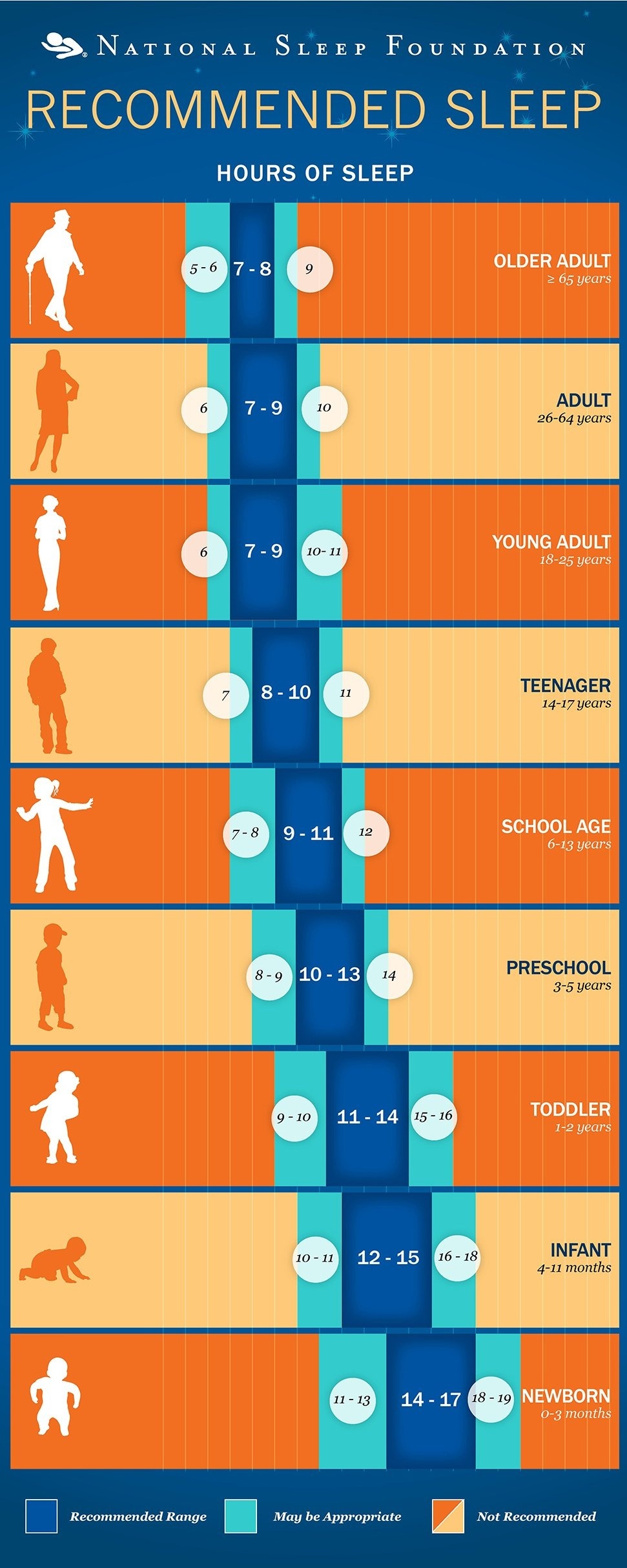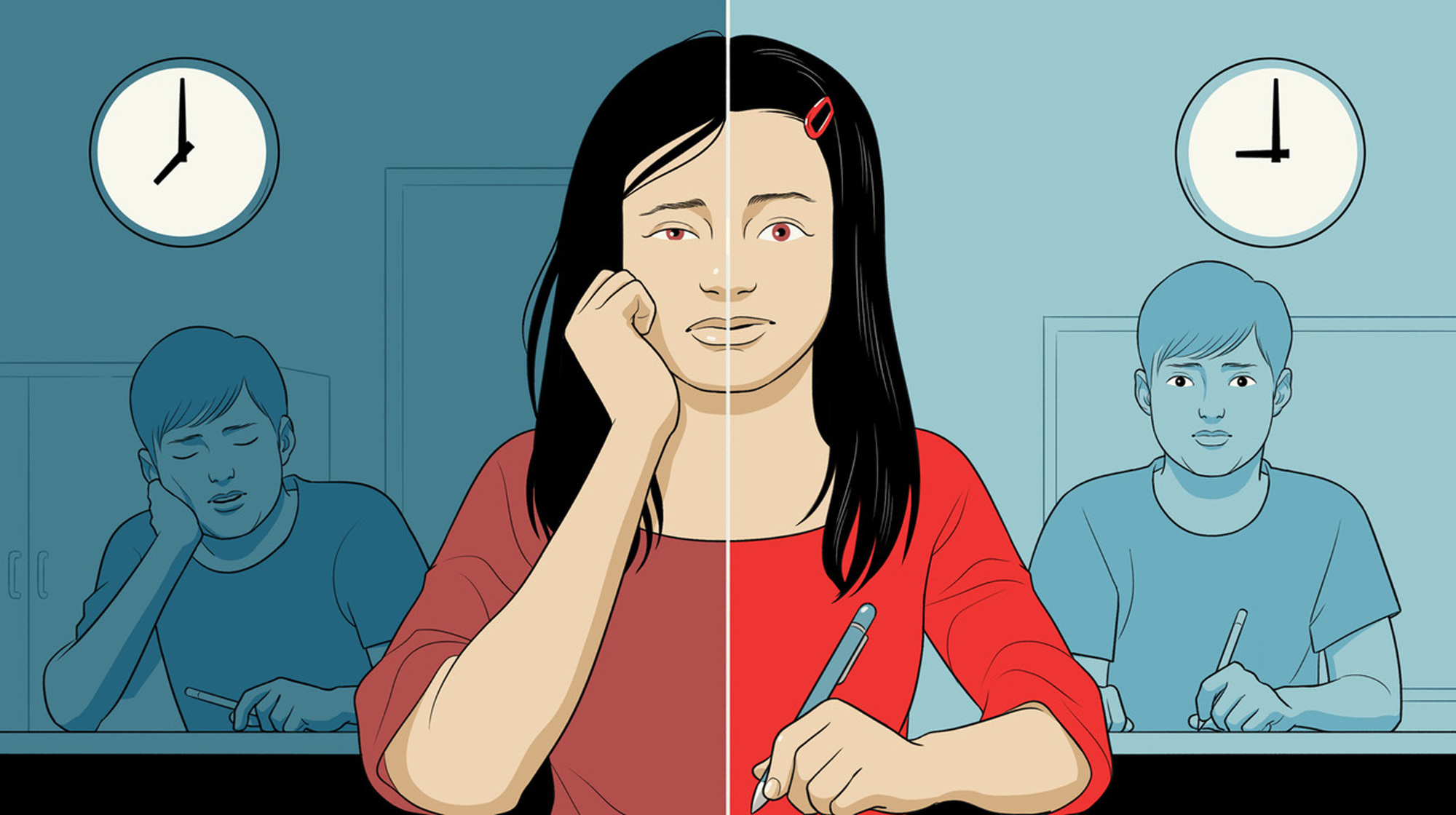The COVID-19 pandemic has not only taken a toll on our physical health, the two long years have also caused many disturbances that have affected our mental health as well. Adolescents are perhaps one of the hardest hit groups.
When schools were closed, millions of students were unable to attend classes with friends and teachers and participate in extracurricular activities. Numerous studies have documented the negative psychological impact on adolescents from living during this pandemic.
But in a new study in the journal JAMA Network Open, Swiss scientists point to a small consolation that many school boys and girls get from the pandemic: At least, they don’t have to get up too early to get there. school like before.
“Every day, our students get an average of 75 minutes more sleep“This has helped improve sleep deprivation and many other health aspects of adolescents,” said child development researcher Oskar Jenni from the University of Zurich.

Why shouldn’t classes start before 9am?
Have you ever seen your children, or yourself in the past, have to wake up in a sluggish state to prepare for the first class that starts at 7:30 am? For kids whose homes are far from school, and whose schools have earlier reading times, every morning like that can be a nightmare.
According to the National Sleep Foundation, children and adolescents need more sleep than adults. Children 6-13 years old need 9-11 hours of sleep at night. Meanwhile, teenagers 14-18 years old need 8-10 hours of sleep.
However, surveys show that 60-70% of children and adolescents do not get enough sleep. One reason is that after puberty, there is a change in the biological clock that takes place in a child’s body. It usually shifts sleep time by 2 hours.
A child can easily go to bed at 9 p.m., but teenagers rarely sleep until 11 p.m. Many parents often think that this habit of staying up late and sleeping in is because their children love to play with their phones. But in reality, it’s a natural change in each of us, stemming from the hormonal changes that occur during adulthood.
So, for a high school student to go to bed at 11pm and get 8-10 hours of sleep, classes shouldn’t start before 9am. It will put adolescents into a state of sleep deprivation, affecting development.

Recommended bedtimes by age from the National Sleep Foundation.
Studies have shown a range of harms from lack of sleep in adolescents, including: impaired concentration, increased risk of traffic accidents, decreased school performance, increased risk of physical injury sports.
Sleep deprivation also affects student behavior in subtle mechanisms. For example, it makes adolescents more irritable and impulsive, increases the likelihood of engaging in risky behaviors such as fighting and school bullying, and increases the likelihood of maladaptive behaviors including smoking. leaves, use of alcohol and drugs.
Not getting enough sleep also increases symptoms of depression, suicidal ideation and many other diseases including obesity, diabetes, Alzheimer’s and chronic metabolic diseases.
Proof of the benefits of classes starting late
For their study, Jenni and colleagues at the University of Zurich surveyed the sleep habits of 3,600 high school students in Zurich during online learning because of the COVID-19 pandemic. They compared these results with an earlier survey of 5,300 students, conducted in 2017.
The results showed that when studying online at home, classes that started late allowed Swiss students to get an extra 90 minutes of sleep in the morning. However, they also slept 15 minutes later each night, compared with pre-pandemic times.
The student’s total sleep time increased to approximately 75 minutes per day. This has positive effects on health and well-being. Students report waking up late feeling relaxed and energized.
“Although the closure [trường học] has clearly undermined the health and well-being of many young people, but our findings reveal a upside that has so far received little attention.“, Jenny said.
“Our research shows a clear benefit of starting class later in the morning, so that children can sleep more.”

In the past few years, scientists have also repeatedly pointed out the benefits of delaying the morning class schedule for students. In 2019, a German high school conducted a nine-week experiment. They allow a group of students to arrive more than 1 hour late to school.
Scientists will measure the impact of this reschedule based on the students’ wearables, their sleep logs and classroom tests.
Tracking results showed that 97% of the students then slept better and were more focused. Students who attended school later did better on reflex tests, showing that they were less tired and better able to absorb information in the classroom. These students’ homework results also improved.
“In our study, almost all participating students (97%) benefited from a later study time, having longer sleep in lessons with classes starting from 9am onwards – On average, students get an extra hour of sleep on those days.”, the study authors wrote.
Prior to that, in 2015, 18 high schools in the US participated in a study to change the class schedule from 7:50 am to 8:45 am. The results showed that students at these schools got more sleep each night, while not being tempted by staying up late because they had to go to school late the next morning.
The average test scores of these students also increased by 4.5%. “Asking teenagers to get up and awake at 7:30 a.m. is like asking an adult to work and be awake at 5:30 a.m.“, said study author and biologist Horacio de la Iglesia at the University of Washington.

A study in the Journal of Clinical Sleep Medicine also observed interesting data. Accordingly, a district in the US has simultaneously delayed the time of morning classes for high school students by 1 hour. As a result, the number of traffic crashes involving students in this district has decreased by 16.5%.
Collectively, there is a growing body of research supporting the adjustment of school hours for students to the circadian clock of adolescence. Delaying the study time after 9 am not only helps students sleep better, focus more and have higher academic results, but also helps them improve their physical and mental health.
Refer to Sciencealert
.
